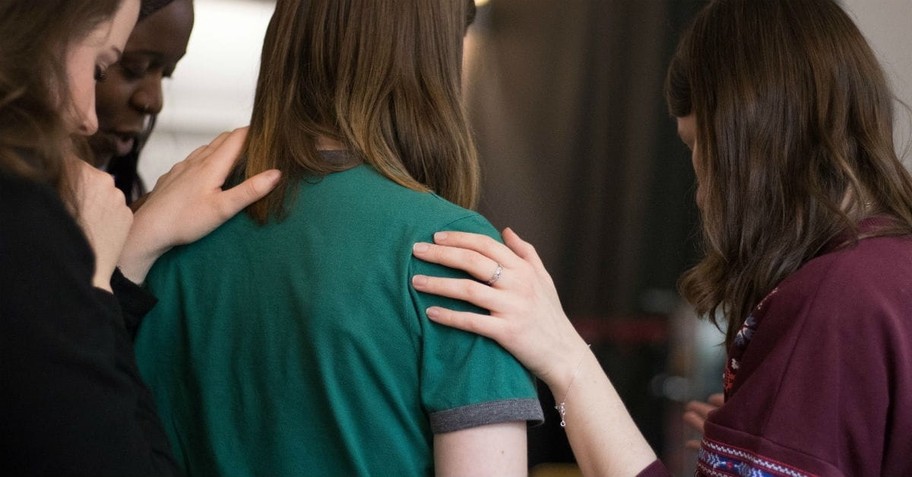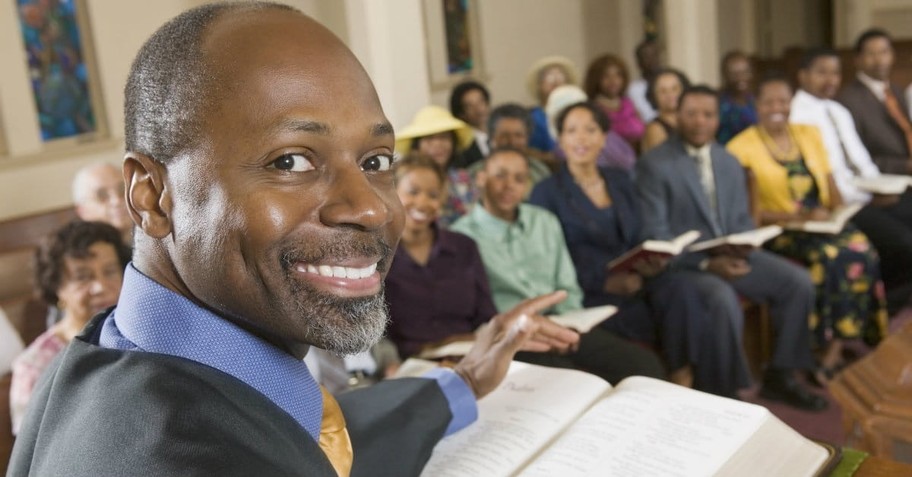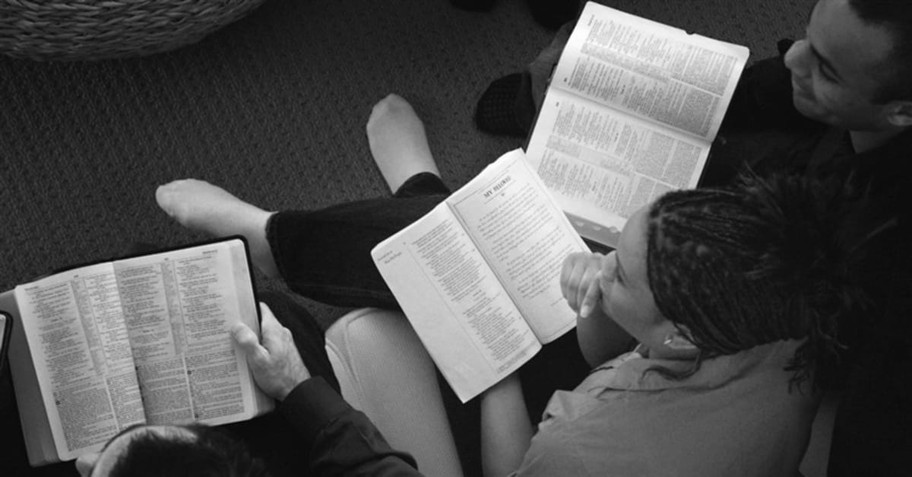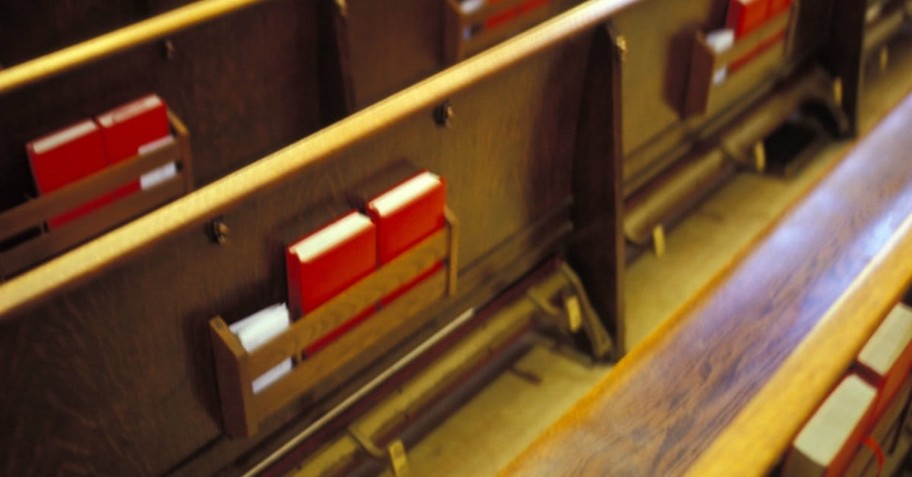12 Ways Churches Can Welcome People of All Races

Decades ago, Rev. Martin Luther King, Jr. called the 11 a.m. hour on Sunday morning "the most segregated hour in America.” Statistics show that it still is. A vast majority of American churches have congregations that are primarily made up of one racial group rather than the diverse ethnicity of the general population. People still worship in white churches, black churches, Asian churches, and Latino churches.
But the Bible reveals that in heaven, people of all races will worship God together. Since heavenly worship will be diverse, shouldn’t earthly worship be, too?
You can make your church’s congregation more racially diverse (and pleasing to God, who created all people in His image) if you’re intentional about doing so. Here’s how to get started:
Photo courtesy: ©Thinkstockphotos.com

1. Acknowledge the problem.
If your church is one of the many that’s not racially diverse (more than 80 percent of your congregation is a single race), acknowledge the problem and start talking about it openly with the people in your church. Be willing to engage in tough conversations. The more you confront racial issues, the less awkward they’ll become to discuss. It's especially important for pastors and other leadership figures in the church to lead the way on this issue, so that congregations will be given a good example to follow.
Photo courtesy: ©Thinkstockphotos.com

2. Assess the personal histories and current attitudes of your church’s leaders toward diversity.
Hold meetings in which your church’s staff and volunteers can honestly discuss how their past experiences have shaped their current beliefs about diversity. What prejudices might they have developed that are preventing them from pursuing diversity? What ideas do they have about changing your church to become more diverse? Ask your church’s leaders to commit to making church diversity a top priority and goal. And if your church's leadership itself is not diverse, prayerfully consider this as well.
Photo courtesy: ©Thinkstock/WDnet

3. Pray for God’s help.
Just like with any issue in the church, prayer should be at the forefront of pursuing a racially inclusive congregation. Ask God to motivate your church’s leaders to pursue diversity, to attract people of diverse races from your local community to visit your church, and to make them feel welcome enough to join your church. Pray for God to help everyone in your church see others as God sees them, recognizing that the Holy Spirit lives inside the souls of Christians of all races and wants to unite them. Pray God softens peoples' hearts to see all people as loved by Him and in need of community.
Photo courtesy: Unsplash.com

4. Focus on the universal Gospel more than a certain kind of culture.
Ask yourselves a tough question: “Is your church primarily focused on preserving the culture of some people or presenting the Gospel to all people?” Realize that the practice of segregating people denies the unity that all Christians have in Christ. For your church to be true to the Gospel’s message, it must welcome all people with equal love and enthusiasm. It’s not right to talk about taking the Gospel on the other side of the world if your church won’t worship with people who live on the other side of your town. When your church is true to the Gospel, there will be unity among diverse people in your congregation.
In this Christianity.com video, Pastor Robert Greene reiterates this very thing: that we are to pursue racial diversity not for its own sake, but because we are motivated by the Gospel.
Photo courtesy: ©Thinkstockphotos.com

5. Drive innovation in your church by inviting people of many different races to serve on staff and as volunteers.
A racially diverse group of church leaders brings a wealth of different experiences and perspectives to your church, which will naturally lead to innovative ideas for your church’s ministry work. You've heard the old saying "walk a mile in my shoes"; well, this certainly applies to including people from a variety of backgrounds into your church's leadership. God has called people from all races and nations to be His people, so what a beautiful picture it would be if more churches mirrored that!
Photo courtesy: ©Thinkstockphotos.com

6. Show diversity in your church’s communications materials.
Your church’s website and printed materials should include photos of people of different races to reflect your commitment to racial diversity. Doing so will help make all people feel welcome to visit and participate in your church. It's important not just to talk about racial diversity in the church, but to actually demonstrate it. This will help people of different races connect better to your church community as well.
Photo courtesy: ©Thinkstock/matthewennisphotography

7. Partner with some multicultural organizations in your church’s area to minister to your local community.
Share some resources as you work together to serve people in need and show them God’s love in action through your relationships (which will give them a glimpse of heaven, where Christians of all different races will be connected through God’s love). This can be a wonderful way to help those in the community and also to challenge your church members to see the Body of Christ in a broader sense.
Photo courtesy: ©Thinkstockphotos.com

8. Choose people of other races for accountability and mentoring relationships.
Encourage your church’s leaders to enter into accountability and mentoring relationships with people from different races whenever possible. Doing so will give them valuable perspectives to help them look at their ministries in fresh ways. Recently, a pastor shared that he was convicted by realizing he included minorities, but he did not view them as authorities. But in fact, it is often people who are ostensibly so different from us that God uses to challenge, convict, and grow us.
Photo courtesy: ©Thinkstockphotos.com

9. Worship in diverse ways.
During your church’s worship services, use various musical styles and dramatic skit plots that appeal to people of different racial backgrounds. Pray in different ways that give people of different races opportunities to get out of their comfort zones and approach God differently than they may have in the past. Doing so can lead to people encountering God in fresh ways. A church's style of worship can be a highly contentious issue for many congregations, but we should ask ourselves what our motivations are: are we seeking to reach people with the Gospel and let them know of God's love, or are we clinging to our own preferences? Who knows, we may even discover new favorite hymns and ways of worshipping.
Photo courtesy: Unsplash/Jon Tyson

10. Teach and preach about diversity.
Try to educate your congregation about racial diversity is important by making it the focus in sermons and the curriculum for groups such as Sunday school classes and youth groups at least twice each year. Include some Bible verses that encourage diversity. Also, work with pastors of other races to swap or share pulpits during some weekend worship services. If a congregation never hears teaching or preaching on this topic, churches can't expect true change to take place.
Photo courtesy: ©Thinkstockphotos.com

11. Create diverse small groups.
Include people of different races in your church’s small groups to help people within your congregation develop interracial friendships and learn from each other.
And if including those of different races in our small group challenges some of deep-rooted assumptions, this is generally a good thing. Crosswalk.com contributor Philip Nation provides these guidelines for leading a small group where there may be a diversity of opinion: "As the leader of the group, you must set the tone. If you don’t, the first one to voice their position will do it for you. It does not have to be a tense rattling off of the 'rules for theological combat.' Rather, let the group know that there may be some disagreement during the discussion and that it is okay. Hold up humility, hospitality, and civility as virtues that are needed for spiritual friendships to thrive."
Photo courtesy: ©Thinkstockphotos.com

12. Be patient.
Since racial problems are complex, it takes time to solve them. We shouldn't expect this to happen instantly. Keep praying and working, and in time you’ll see people’s perspectives change, which will then change their actions--which will then change your church into a racially diverse congregation that reflects God’s intentions for all types of people to worship together.
Adapted from Church Diversity: Sunday the Most Segregated Day of the Week, copyright 2011 by Scott Williams. Published by New Leaf Publishing, Green Forest, Ark., www.newleafpublishinggroup.com.
Scott Williams served on staff as a key leader and campus pastor at LifeChurch.tv, one of the largest and most innovative churches in America. He is an effective speaker, strategist, ministry consultant, entrepreneur and popular social media influencer for pastors and ministries around the globe. Scott is married, a father of two, and lives in Oklahoma City, OK. He is an avid blogger at www.BigIsTheNewSmall.com.
Whitney Hopler is a freelance writer and editor who serves as both a Crosswalk.com contributing writer and the editor of About.com’s site on angels and miracles (https://angels.about.com/). Contact Whitney at: angels.guide@about.com to send in a true story of an angelic encounter or a miraculous experience.
Photo courtesy: ©Thinkstockphotos.com
Publication date: April 12, 2018
Originally published April 12, 2018.








